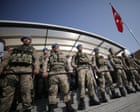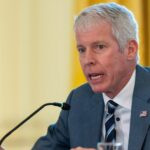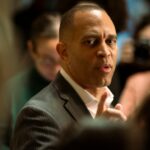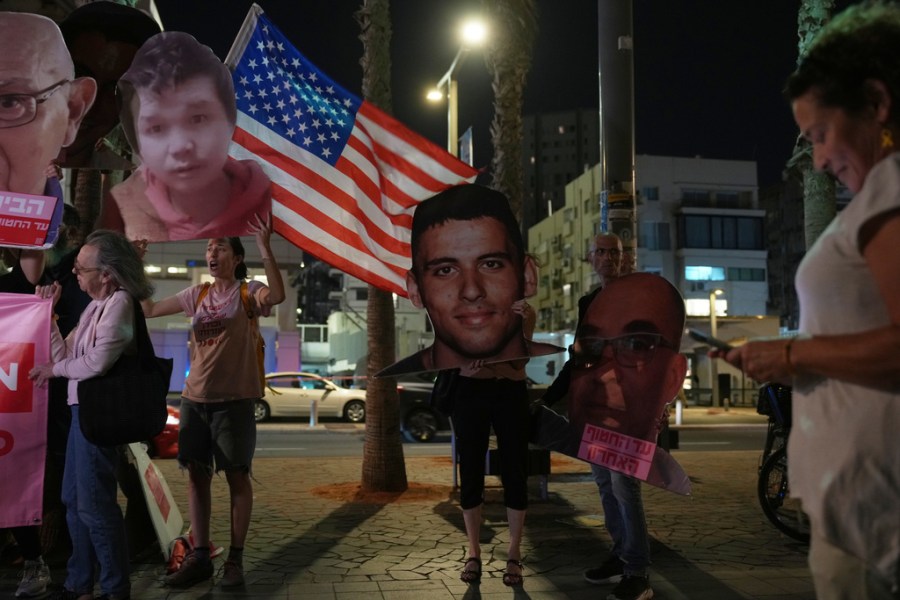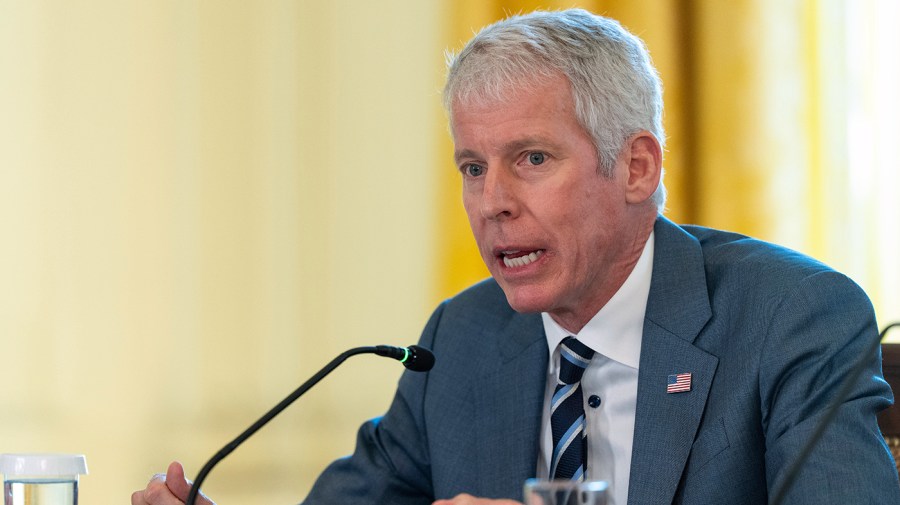Earlier this month, the remaining surviving hostages were freed from Gaza, ending two years of anguish for their families. These tearful reunions remind us that no one should be taken captive and no family should wait endlessly for a loved one’s return. As family members of deceased hostages whose remains have never been recovered, we celebrate with those reunited and share in the grief of those still waiting.
The pain hostage families endure — the nightmares, the uncertainty — is all too familiar. Jim Foley’s kidnapping and murder by ISIS and Bob Levinson’s disappearance at the hands of the Iranian regime are constant reminders of the stakes. We know from experience that not all Americans wrongfully detained receive the same priority. And we are not alone.
Dozens of Americans remain unjustly detained abroad — some for years. Increasingly, these cases involve foreign governments that target, capture, and use U.S. nationals as bargaining chips for political leverage, flagrantly violating human rights. The United States must show strategic resolve and moral courage to bring them home.
Since its creation in 2015, the U.S. hostage enterprise has secured freedom for more than 170 Americans unjustly held captive across multiple administrations — a testament to bipartisan commitment. We commend these efforts and applaud the current Trump administration’s success in bringing many dozens home. But these achievements fall short for families still waiting.
The reality is current policies were designed to address terrorist kidnappings, not state hostage-taking. Nor were they crafted to deter this growing threat. Some Americans languish in prison out of the limelight. Families often lack resources for advocacy while enduring separation from a loved one — often the primary wage earner. Even among those freed, some cannot access benefits they should be entitled to under the law.
How do we know this? Our organization’s “Bringing Americans Home” research series has studied these issues for seven years through confidential interviews with officials, experts, families and survivors. Our latest report, covering President Joe Biden’s final year in office, revealed foreign policy and economic considerations that delayed decisive action, inconsistent wrongful detention designations, unequal treatment of legal permanent residents, and Americans trapped under abusive travel bans. Despite progress, the hostage enterprise has struggled to adapt as the threat evolves — leaving Americans in captivity longer than necessary while our government hesitates.
So we ask: Why hasn’t the U.S. shown equal urgency to all cases of Americans held captive overseas? Why do many families still feel ignored while their loved ones wait years for freedom?
Clearly, we’ve got work to do. Serious self-reflection and adaptation are required — not only to bring Americans home more quickly, but to ensure the best support for families and survivors as they endure and recover from trauma.
The U.S. government has not conducted a public review of the hostage enterprise since its creation in 2015. It’s time for that to change. The current administration must launch a comprehensive, whole-of-government review — one that incorporates victims’ voices and independent experts — to build on successes and confront persistent challenges, including inequities in care.
This review must focus on adapting to emerging threats, strengthening support for families and captives, and prioritizing preventing and deterrence. It should not be about cutting costs, but about strategically investing in policies and capabilities to end the deplorable practice of “hostage diplomacy.” Let our research — the voice of those harmed — be the catalyst for doing better.
The freedom of so many from captivity in Gaza shows the power of focused government action and international cooperation. These reunions prove that prioritization matters — and that many more happy reunions are possible. Every family with a loved one unjustly held captive deserves the same chance.
As headlines fade, the danger grows that the missing will be forgotten. Complacency is not an option. For the families of those held hostage in Gaza, nothing was more important than their freedom — and our government’s actions matched their resolve. As a nation, let’s commit to securing the freedom of every American wrongfully detained as if it were our loved one’s life on the line.
Every captive deserves the full weight of our nation’s resolve and resources. The hostages freed from Gaza are home, but their freedom must be a spark — not an ending — that reignites our fight to bring every American captive home and recover those we’ve lost.
Diane Foley is president of the Foley Foundation. Foley’s son James was beheaded by ISIS nearly 10 years ago. David Levinson is a board member of the Foley Foundation. Levinson’s father Robert disappeared in Iran and was the longest held hostage in U.S. history.


